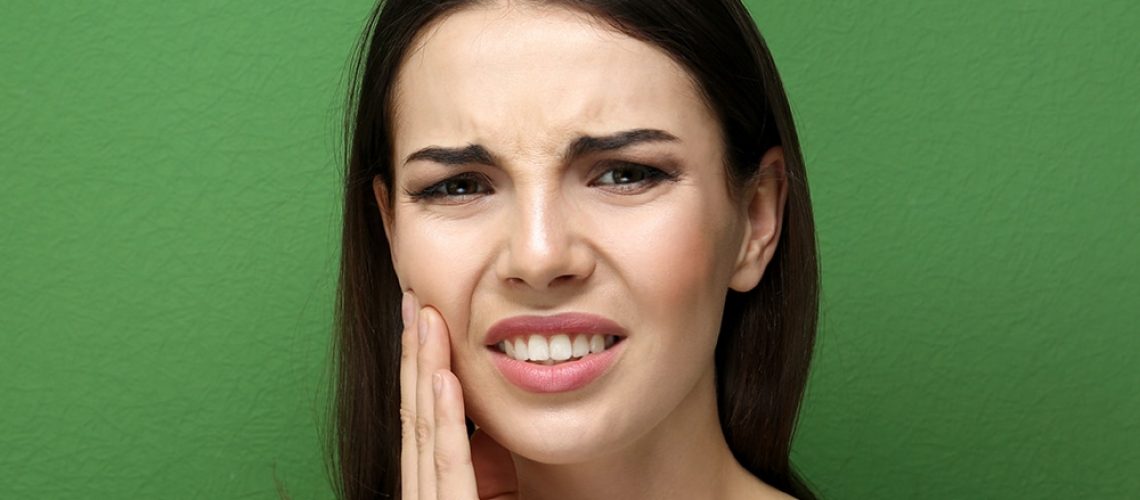Bruxism, or teeth grinding, is a condition that affects both adults and children. It occurs when a person grinds or clenches their teeth. It can be while they are awake or asleep. In many cases, the first time someone knows about their grinding is when a parent or partner tells them or a dentist comments on the severe wear of their teeth. It is important to treat Bruxism as quickly as possible.
For 20 years I used to say that tooth grinding was due to stress. However, recent research has shown that this is not true. We now know that night time tooth grinding and clenching in children and adults is due to the disturbance of normal sleep patterns. The patient’s sleep is disturbed by pain or the partial or complete collapse of the airway causing partial (snoring) or complete blockage (Obstructive Sleep Apnoea). Stress is relevant in that it makes the symptoms more severe and makes us more likely to have symptoms at a lower level of tooth grinding. Research shows that normal breathing is through the nose, and that pathological or diseased breathing is through the mouth. People who mouth breath rather than through their nose are much more likely to be sick!
When we lie down the tongue and/or soft palate drops down and back. In a snorer the tongue or soft palate partially blocks the airway causing more resistance to the flow of air and the noise associated with snoring. In an Obstructive sleep apnoea (OSA) sufferer, the tongue or soft palate drops down and back and completely blocks the airway. Flow of air in and out of the airway stops and the patient is choking! The OSA sufferer needs to wake up to cause the muscles of the airway to contract and open the airway up to allow air to flow in and out again or they will die. However, when the patient goes back to sleep the airway will again collapse and block and the patient starts choking again till they next wake up. This can happen multiple times each hour and the patient will wake tired and un-refreshed. In the process of waking to open the airway and contract the airway muscles the lower jaw moves forward and back and side to side causing the teeth to rub over each other and wear away.
Symptoms of Teeth Grinding
Most people are surprised when I tell them that they grind their teeth at night. As a dentist it is obvious to me when I see worn upper and lower front teeth that a patient is grinding their teeth at night. It makes me concerned that they may be snoring or worse choking themselves while sleeping. Symptoms that a patient may not have associated with night time teeth grinding and wear are:
- morning headaches, neck aches, ear aches and eye aches
- sore jaw and facial muscles
- afternoon tiredness.
- Snoring, choking, gasping for air.
Why Teeth Grinding Should be Treated
If not dealt with properly, teeth grinding will cause the teeth to wear prematurely, crack and even fracture in half. Most often the teeth break above the gum and can be saved. However, if they fracture below the gum then they will need to be extracted and replaced with an implant or bridge. Due to the increased forces exerted during grinding there is also excess force on the Jaw Joints. The Jaw Joints can also get damaged. A common symptoms that patients ignore is clicking or locking of the jaw joints. Clicking and locking is evidence of a night time grinding habit and means that the ligaments of the jaw joints have been stretched and the jaw joints are getting damaged.
Things are more concerning because..
Grinding associated to snoring, choking and gasping for air during sleep is the real concern here. The dentist needs to ask some specific questions of each patient and in consultation with the patient decide if more investigation is necessary. The first step is a sleep study, filling in of a more comprehensive questionnaire and checking out the health of the Jaw Joints.
Dental treatments for teeth grinding
If you think, or know, that you are grinding your teeth, your first step should be to see your dentist. The will need to evaluate your teeth, looking for the severity of the wear that has occurred. We know that 1 mm of wear in a whole life (i.e. 100 years) is normal. Also he will ask you specific questions about your sleep and give you a more comprehensive medical questionnaire. He will probably recommend you have a sleep study, to assess you sleep quality and to see how much you clench and grind, or snore or worst of all choke yourself while sleeping.
Your dentist is likely to recommend that you wear a night-guard while sleeping. This night-guard is a soft or hard plastic device worn over your teeth while you sleep. It is custom made by your dentist to fit the specific contours of your mouth so that it is as comfortable as possible to wear. If you snore or worse choke yourself then he will recommend a Dental Sleep Appliance. If you have worn through the enamel (the hard protective outer layer of your teeth) then he will discuss with you your options to protect your teeth from further wear. This is usually white fillings placed on the worn teeth to replace the worn away enamel and restore your teeth to their original condition. The filling can be made of porcelain or composite.
Reducing your stress levels is always helpful. It will not stop grinding and clenching but is will decrease its severity. Relaxation techniques to reduce the intensity of teeth grinding include:
- listening to relaxing music
- reading a calm relaxing book
- taking a warm bath before bed
- daily meditating
If your dentist identifies significant damage to your teeth caused by grinding, you may require some form of cosmetic surgery to restore your teeth to their original condition.
If you suspect that you are grinding your teeth as you sleep, call our friendly reception staff (9529 2920) to book an appointment for a dental examination and to talk about the treatment options for Bruxism.


